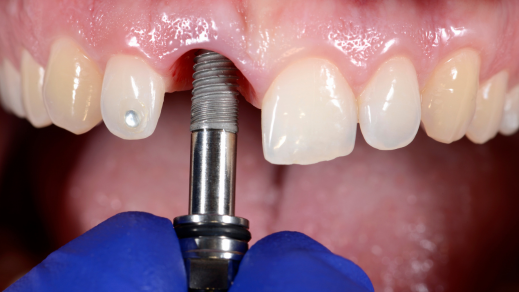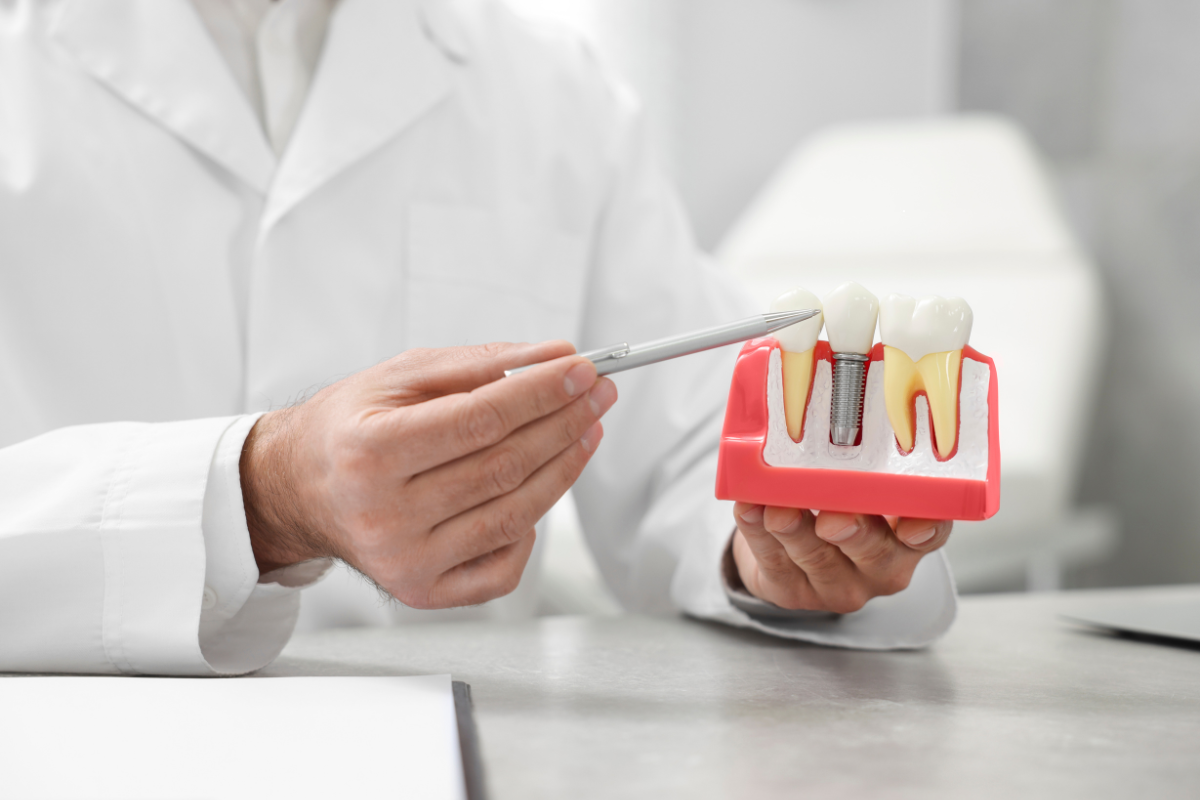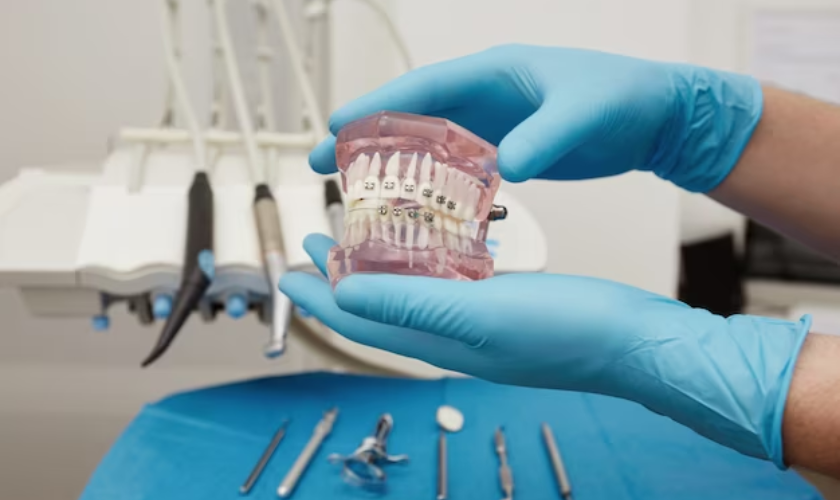San Jose, CA
Living with a Smile: Understanding Dental Implant Discomfort


Dental implants are a fantastic option for replacing missing teeth. They look and function just like natural teeth, boosting confidence and improving your quality of life. But like any surgical procedure, some discomfort is to be expected. Let’s delve into what to expect regarding pain after dental implant surgery and how to manage it effectively.
Feeling the Feels: Discomfort After Implant Placement
The good news is that the implant placement itself shouldn’t cause any pain. Your dentist will use local anesthesia to numb the area completely. You might feel some pressure during the procedure, but it shouldn’t be uncomfortable.
However, once the anesthesia wears off, you’ll likely experience some soreness and discomfort in the area around the implant site. This is entirely normal and is your body’s natural response to the surgical intervention.
The pain is usually manageable with over-the-counter pain relievers like ibuprofen or acetaminophen. Your dentist will prescribe the most suitable medication based on your specific needs and medical history.
Discomfort Timeline: How Long Does It Last?
So, how long will you be feeling this post-implant soreness? The good news is that it’s usually temporary. Most patients experience the most significant discomfort in the first 2-3 days after surgery. This discomfort then gradually subsides over the following week to ten days.
Here’s a general timeline to give you an idea:
- Days 1-3: This is typically when you’ll feel the most discomfort. Taking pain medication as prescribed and applying ice packs to the area can significantly help manage the soreness.
- Days 4-7: The discomfort should start to lessen. You can continue taking pain medication if needed, but the frequency should decrease.
- Days 7-10: Most of the soreness should be gone by now. You might still experience some tenderness, but it should be mild and manageable.
Important Note: This is a general timeline, and everyone heals at their own pace. If you experience any pain that worsens or persists beyond ten days, contact your dentist immediately.
Myth Buster: Do Dental Implants Hurt Forever?
Absolutely not! The post-surgical discomfort is temporary and should subside within a reasonable timeframe. Dental implants are designed to integrate seamlessly with your jawbone, providing a long-term solution for missing teeth without lingering pain.
How Bad Can It Get?
The intensity of discomfort after implant placement can vary depending on several factors, including:
- The complexity of the surgery: More complex procedures involving bone grafting or multiple implants might cause slightly more discomfort.
- Your pain tolerance: Some people naturally have a lower tolerance for pain than others.
- Your aftercare routine: Following your dentist’s instructions regarding pain medication, ice application, and dietary restrictions will significantly influence your healing process and discomfort level.
If you’re particularly worried about pain management, discuss your concerns with your dentist beforehand. They can address your anxieties and create a personalized plan to ensure your comfort throughout the process.
Infection Alert: Potential Concerns After Implant Placement
While uncommon, dental implant infections can occur. Here’s what you need to know:
- Symptoms: Signs of an implant infection include prolonged pain, swelling, redness around the implant site, pus discharge, and fever.
- Antibiotics: If you experience any of these symptoms, contact your dentist immediately. They will likely prescribe antibiotics to combat the infection.
- Best Option: There’s no “one size fits all” answer to the best antibiotic for an implant infection. Your dentist will choose the most effective medication based on the specific bacteria causing the infection.
Dental Implant Infection Syndrome (DIIS):
This is a rare but serious complication characterized by chronic inflammation around the implant. Early diagnosis and treatment are crucial to prevent bone loss and potential implant failure.
How Common are Infections?
Thankfully, dental implant infections are relatively uncommon, with a success rate exceeding 95%. Proper oral hygiene practices and following your dentist’s aftercare instructions significantly reduce the risk of infection.
Bone Infection:
In very rare cases, an implant infection can spread to the jawbone, leading to a condition called osteomyelitis. This requires immediate treatment with antibiotics and possibly surgery.
The Takeaway: Partnering with Your San Jose for a Smooth Journey
Dental implants are a life-changing solution for replacing missing teeth. While some temporary discomfort is to be expected after placement, it’s usually manageable and shouldn’t deter you from considering this fantastic dental advancement. By choosing a trusted dentist in San Jose and following their aftercare instructions diligently, you can minimize discomfort and ensure a smooth healing process. Remember, a healthy mouth is a happy mouth, and dental implants can play a significant role in achieving that.





